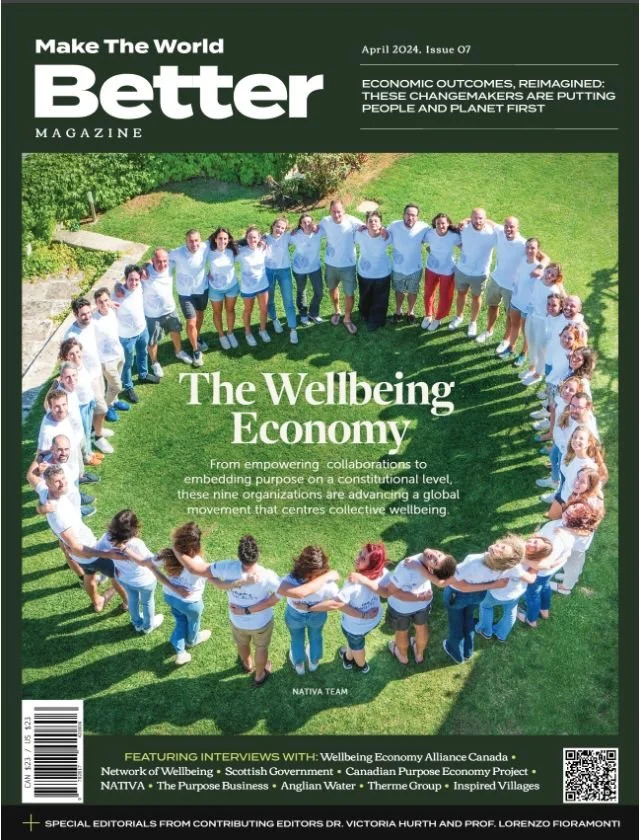A 7 step guide towards sustainable tourism
Waste management and sustainability are usually after-thoughts when rolling out tourism initiatives but, we’re telling you, they shouldn’t be.
The latest figures from the United Nations World Tourism Organization (UNWTO) confirm what we already know: we are global citizens continuously bridging—flying into, sailing from, trailing across—borders. In its 2018 report, UNWTO marked 1.4 billion international tourist arrivals, up 6% from 2017’s already solid figures. Also, in 2018, The World Travel & Tourism Council (WTTC) reports as follows: travel and tourism supported 319 million jobs across the world, contributing a record $8.8 trillion to the world economy.
The tourism economy, and related industries, is a force to be reckoned with and a sector with the potential to be seen as a leader in effective sustainability change. Here, we list how sustainability in the tourism industry can expand its impact at every step.
Eco-Tourism is a formidable cornerstone of a viable business
Building a waste-aware business in tourism begins way before the ground-breaking ceremony or a launch event’s photo ops. Whether you’re developing a dream holiday destination or cultural immersion tour, a growing breed of successful tourism businesses are those that provide sustainable solutions. These solutions are built to benefit both the local population as well as help preserve the environment in the region. Building (literally and figuratively) a tourism venture on those foundations is a viable growth plan.
You don’t have to brand green to go green
We’re not expecting every tourism business to be waving the eco flag. The goal is not to paint a monochromatic landscape of greenery. Instead, the point is to push for change from the onset and onwards. From the moment of deciding to pursue an investment in a tourism venture, to selecting the right parcel of land to invest in, identifying ways to support the local community, and developing the operational systems that will move the venture forward – every step can be planned to maximise sustainability. The branding of a business can still be as varied as they come — luxury, business, budget—but a green heart can affect both cost and conscience substantially.
The entire ecosystem of a thriving business is an opportunity to create change
When tourism businesses decide to function sustainably, most have the mistaken notion that those are add-on efforts to their existing businesses. However, sustainability can—and should—come in at every point of the tourism venture to 1) promote effective integration, 2) protect the environment in which the tourism business thrives, and 3) to literally sustain or guarantee the longevity of the business.
A sustainable effort must be material to the type of tourism venture
As with any effort that aligns with sustainability, materiality is relative. The same goes for ventures in tourism. It is important to identify that which is vital to the business’ ability to thrive. This transforms the effort from a “nice-to-have” into a substantial move that can make a difference in both profitability and longevity. A luxury resort might ban single-use plastic in favour of reusable and refillable items, they might also invest in schools, or training for their staff; whereas a basic camping ground might provide rubbish separation options, a compost heap for food waste and wind or solar power options.
Waste doesn’t just come after the “Please Make Up Room” sign
The concept of waste management doesn’t merely come after check out. Those who have a better understanding of waste management efforts in tourism know that more effective systems have to be in place to ensure that waste is curbed at every step of the tourism process. The short-term nature of tourism makes it a prime industry for single-use items but with some thoughtful preparation and, most importantly, guest cooperation, small changes – like refillable soap and shampoo or not providing disposable items except on request – can go a long way.
Travelers are developing a conscience
Call it a marketing angle or even a travel trend, but more and more people are expressing a desire to travel sustainably. Fad or not, we’ll take it. According to the new Sustainable Travel Report released by Booking.com, a substantial 87% of jet-setting, globe-trotting folk want their trips to be more eco-friendly. The perfect excuse to match sustainability values to the brand!
Green initiatives can provide both operational and marketing focus
The Sustainable Travel Report further notes some top reasons travellers have for specific accommodation choices are eco-friendly based: 40% prefer businesses focused on reducing environmental impact, 34% of travellers favour hospitality options that have locally relevant experience and 33% of travellers want to feel good about an accommodation choice. It’s a win-win scenario: more travellers respond to a tourism business with green initiatives, green initiatives benefit the business and the environment. This allows businesses to invest in mechanisms that support these additional “selling points.”
The tourism economy, and related industries, is a force to be reckoned with and a sector with the potential to be seen as a leader in effective sustainability change.




